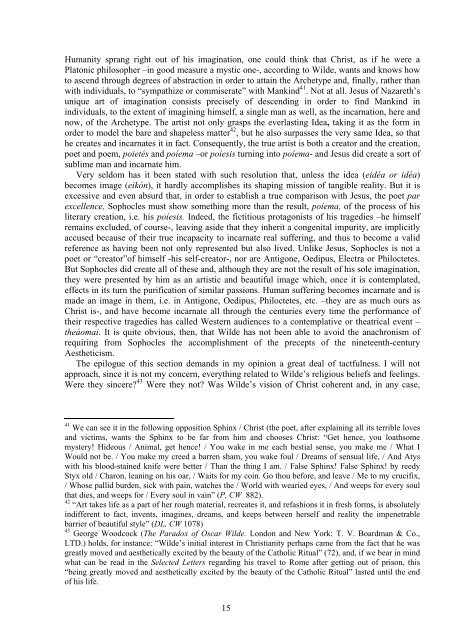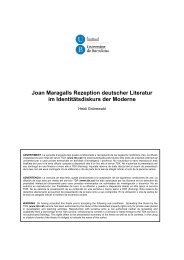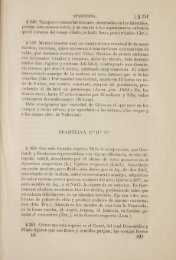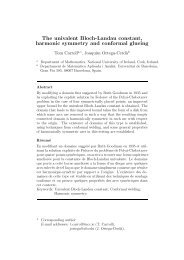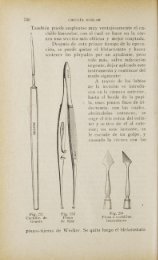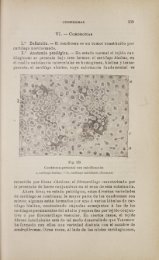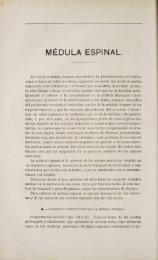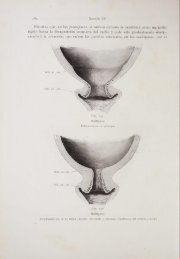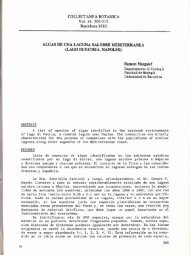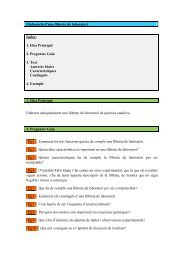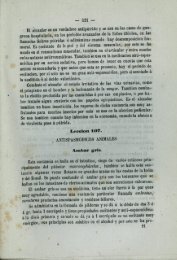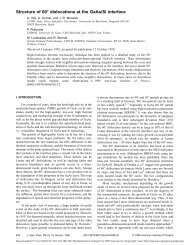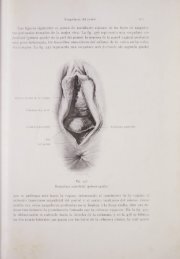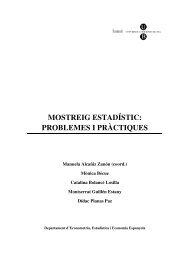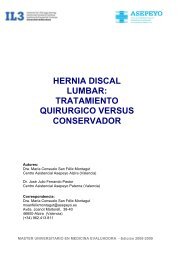Wilde Parsa ang_12080.pdf - Dipòsit Digital de la UB - Universitat ...
Wilde Parsa ang_12080.pdf - Dipòsit Digital de la UB - Universitat ...
Wilde Parsa ang_12080.pdf - Dipòsit Digital de la UB - Universitat ...
Create successful ePaper yourself
Turn your PDF publications into a flip-book with our unique Google optimized e-Paper software.
Humanity spr<strong>ang</strong> right out of his imagination, one could think that Christ, as if he were a<br />
P<strong>la</strong>tonic philosopher –in good measure a mystic one-, according to <strong>Wil<strong>de</strong></strong>, wants and knows how<br />
to ascend through <strong>de</strong>grees of abstraction in or<strong>de</strong>r to attain the Archetype and, finally, rather than<br />
with individuals, to “sympathize or commiserate” with Mankind 41 . Not at all. Jesus of Nazareth’s<br />
unique art of imagination consists precisely of <strong>de</strong>scending in or<strong>de</strong>r to find Mankind in<br />
individuals, to the extent of imagining himself, a single man as well, as the incarnation, here and<br />
now, of the Archetype. The artist not only grasps the ever<strong>la</strong>sting I<strong>de</strong>a, taking it as the form in<br />
or<strong>de</strong>r to mo<strong>de</strong>l the bare and shapeless matter 42 , but he also surpasses the very same I<strong>de</strong>a, so that<br />
he creates and incarnates it in fact. Consequently, the true artist is both a creator and the creation,<br />
poet and poem, poietés and poíema –or poíesis turning into poíema- and Jesus did create a sort of<br />
sublime man and incarnate him.<br />
Very seldom has it been stated with such resolution that, unless the i<strong>de</strong>a (eidéa or idéa)<br />
becomes image (eikón), it hardly accomplishes its shaping mission of t<strong>ang</strong>ible reality. But it is<br />
excessive and even absurd that, in or<strong>de</strong>r to establish a true comparison with Jesus, the poet par<br />
excellence, Sophocles must show something more than the result, poíema, of the process of his<br />
literary creation, i.e. his poíesis. In<strong>de</strong>ed, the fictitious protagonists of his tragedies –he himself<br />
remains exclu<strong>de</strong>d, of course-, leaving asi<strong>de</strong> that they inherit a congenital impurity, are implicitly<br />
accused because of their true incapacity to incarnate real suffering, and thus to become a valid<br />
reference as having been not only represented but also lived. Unlike Jesus, Sophocles is not a<br />
poet or “creator”of himself -his self-creator-, nor are Antigone, Oedipus, Electra or Philoctetes.<br />
But Sophocles did create all of these and, although they are not the result of his sole imagination,<br />
they were presented by him as an artistic and beautiful image which, once it is contemp<strong>la</strong>ted,<br />
effects in its turn the purification of simi<strong>la</strong>r passions. Human suffering becomes incarnate and is<br />
ma<strong>de</strong> an image in them, i.e. in Antigone, Oedipus, Philoctetes, etc. –they are as much ours as<br />
Christ is-, and have become incarnate all through the centuries every time the performance of<br />
their respective tragedies has called Western audiences to a contemp<strong>la</strong>tive or theatrical event –<br />
theáomai. It is quite obvious, then, that <strong>Wil<strong>de</strong></strong> has not been able to avoid the anachronism of<br />
requiring from Sophocles the accomplishment of the precepts of the nineteenth-century<br />
Aestheticism.<br />
The epilogue of this section <strong>de</strong>mands in my opinion a great <strong>de</strong>al of tactfulness. I will not<br />
approach, since it is not my concern, everything re<strong>la</strong>ted to <strong>Wil<strong>de</strong></strong>’s religious beliefs and feelings.<br />
Were they sincere? 43 Were they not? Was <strong>Wil<strong>de</strong></strong>’s vision of Christ coherent and, in any case,<br />
41 We can see it in the following opposition Sphinx / Christ (the poet, after exp<strong>la</strong>ining all its terrible loves<br />
and victims, wants the Sphinx to be far from him and chooses Christ: “Get hence, you loathsome<br />
mystery! Hi<strong>de</strong>ous / Animal, get hence! / You wake in me each bestial sense, you make me / What I<br />
Would not be. / You make my creed a barren sham, you wake foul / Dreams of sensual life, / And Atys<br />
with his blood-stained knife were better / Than the thing I am. / False Sphinx! False Sphinx! by reedy<br />
Styx old / Charon, leaning on his oar, / Waits for my coin. Go thou before, and leave / Me to my crucifix,<br />
/ Whose pallid bur<strong>de</strong>n, sick with pain, watches the / World with wearied eyes, / And weeps for every soul<br />
that dies, and weeps for / Every soul in vain” (P, CW 882).<br />
42 “Art takes life as a part of her rough material, recreates it, and refashions it in fresh forms, is absolutely<br />
indifferent to fact, invents, imagines, dreams, and keeps between herself and reality the impenetrable<br />
barrier of beautiful style” (DL, CW 1078)<br />
43 George Woodcock (The Paradox of Oscar <strong>Wil<strong>de</strong></strong>. London and New York: T. V. Boardman & Co.,<br />
LTD.) holds, for instance: “<strong>Wil<strong>de</strong></strong>’s initial interest in Christianity perhaps came from the fact that he was<br />
greatly moved and aesthetically excited by the beauty of the Catholic Ritual” (72), and, if we bear in mind<br />
what can be read in the Selected Letters regarding his travel to Rome after getting out of prison, this<br />
“being greatly moved and aesthetically excited by the beauty of the Catholic Ritual” <strong>la</strong>sted until the end<br />
of his life.<br />
15


